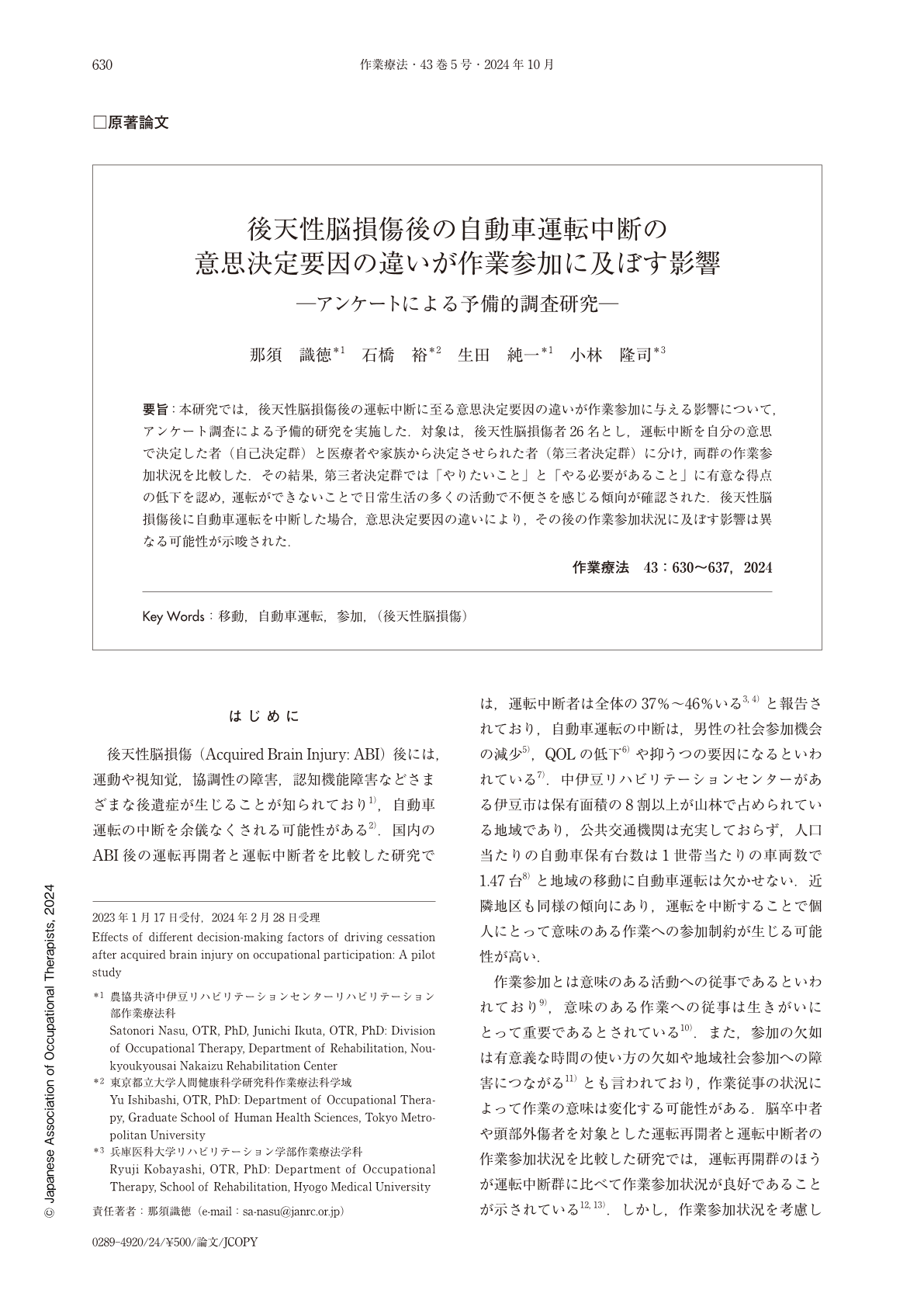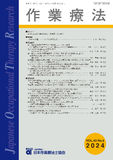Japanese
English
- 販売していません
- Abstract 文献概要
- 1ページ目 Look Inside
- 参考文献 Reference
- サイト内被引用 Cited by
要旨:本研究では,後天性脳損傷後の運転中断に至る意思決定要因の違いが作業参加に与える影響について,アンケート調査による予備的研究を実施した.対象は,後天性脳損傷者26名とし,運転中断を自分の意思で決定した者(自己決定群)と医療者や家族から決定させられた者(第三者決定群)に分け,両群の作業参加状況を比較した.その結果,第三者決定群では「やりたいこと」と「やる必要があること」に有意な得点の低下を認め,運転ができないことで日常生活の多くの活動で不便さを感じる傾向が確認された.後天性脳損傷後に自動車運転を中断した場合,意思決定要因の違いにより,その後の作業参加状況に及ぼす影響は異なる可能性が示唆された.
This study examined the effects of different decision-making factors on driving cessation after acquired brain injury. Occupational participation was measured through a pilot study using a questionnaire. The subjects were 26 acquired brain injury patients divided into two groups: those who voluntarily decided to stop driving (self-decision group) and those forced to do so by their healthcare providers or family members (third-party decision group); the two groups were then compared by occupational therapists. The results showed that the third-party-determined group significantly decreased their scores scores for “things one wants to do” and “things one needs to do,” and that the inability to drive tended to cause inconvenience in many of the activities they performed daily. The results suggest that driving cessation after acquired brain injury may affect subsequent occupational participation differently depending on the decision-making factors.

Copyright © 2024, Japanese Association of Occupational Therapists. All rights reserved.


